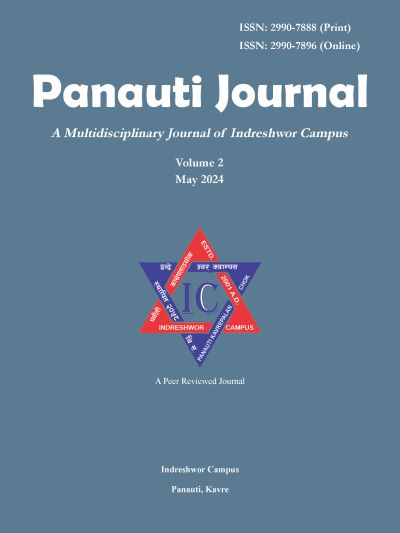Ambivalent Culture: A Migrant's Subject in Kiran Desai’s the Inheritance of Loss
DOI:
https://doi.org/10.3126/panauti.v2i1.66507Keywords:
Ambivalence, Migrant, Post-colonialism, hybrid, WesternAbstract
The research explores The Inheritance of Loss from the perspective of Post-colonialism. The cultural relation between East and West or the Indian and Western culture is hierarchical, controversial, and ambivalent due to misunderstanding and misinterpretation. In this age of multiculturalism and globalization, any individual has a fondness for Western culture. But being a migrant, people experience cultural controversy and contradictory feelings simultaneously.
Ambivalent Culture is the subject of Third and Fourth World people. At first, these people observe the First and Second World; and assume their superiority in culture, custom, and lifestyle; and they are highly modernized and technologically updated. Due to these assumptions, the Third and Fourth World people willingly migrate to the First and Second World with the dream of economic prosperity and for the betterment of life to secure a better future by accepting the very concept of Western lifestyle, custom, and culture. The main problem of migrants appears with the involvement of Western lifestyle and culture, and they encounter cultural dilemmas and trauma. The migrants realize the gap between their own culture and another culture; and as compensation the hybridity in culture appears—the migrants relocate their existence with the cultural hierarchy, disorder, geopolitical confusion, inequality, illegal immigration, and forefront terrorism activity.
The Third and Fourth World people’s migration to secure life with prosperity and a bright future in the First and Second World postulates the imbalance contact between self-identity and foreign identity which lead to the crucial situation and forms ambivalent culture; of the subject of migrant.
Downloads
Downloads
Published
How to Cite
Issue
Section
License
Copyright (c) 2024 Panauti Journal

This work is licensed under a Creative Commons Attribution-NonCommercial 4.0 International License.
This license enables reusers to distribute, remix, adapt, and build upon the material in any medium or format for noncommercial purposes only, and only so long as attribution is given to the creator.




